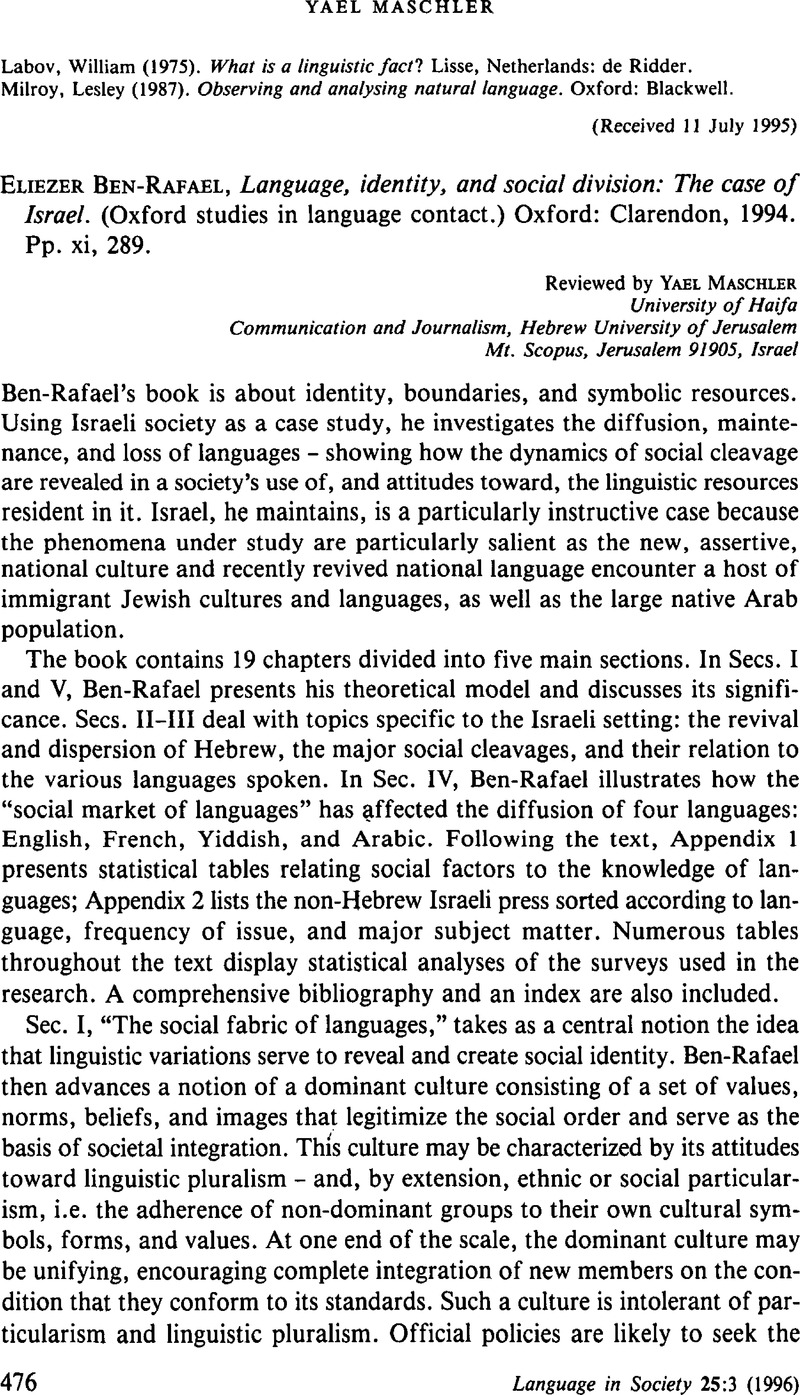No CrossRef data available.
Article contents
Elizaer Ben-Rafael, Language, identity, and social division: The case of Israel. (Oxford studies in language contact.) Oxford: Clarendon, 1994. Pp. xi, 289.
Published online by Cambridge University Press: 19 February 2009
Abstract
An abstract is not available for this content so a preview has been provided. Please use the Get access link above for information on how to access this content.

- Type
- Reviews
- Information
- Copyright
- Copyright © Cambridge University Press 1996
References
REFERENCES
Auer, Peter (1995). The pragmatics of code-switching: A sequential approah. In Lüdi, Georges et al. (eds.) One speaker-two languages: Cross-disciplinary perspectives on code-switching, 115–35. Cambridge & New York: Cambridge University Press, to appear.CrossRefGoogle Scholar
Gumperz, John J. (1982). Discourse strategies. Cambridge & New York: Cambridge University Press.CrossRefGoogle Scholar
Maschier, Yael (1994). Metalanguaging and discourse markers in bilingual conversation. Language in Society 23: 325–66.CrossRefGoogle Scholar
Stoud, Christopher (1992). The problem of intention and meaning in code-switching. Text 12: 127–55.Google Scholar
Tannen, Deborah (1984). Conversational style: Analyzing talk among friends. Norwood, NJ: Ablex.Google Scholar
Wei, Li, & Milroy, Lesley (1995). Preference marking and repair strategies in bilingual conversation: Evidence from a Chinese-English bilingual community. Journal of Pragmatks 23: 281–99.CrossRefGoogle Scholar


